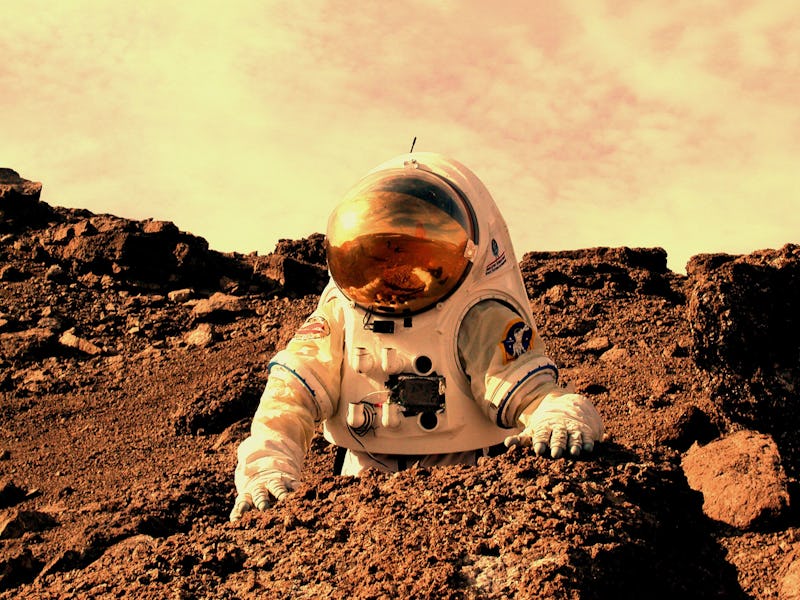This Drug Could Protect Astronauts From the Greatest Threat to Their Brain

Future astronauts traversing deep space are gonna be in some pretty deep shit, figuratively speaking, of course. Getting blasted by cosmic rays is undoubtedly going to have deleterious effects on astronauts, from vision problems to increased risk of cancer.
But a study published on May 18 in Scientific Reports suggests scientists are already thinking about solutions. In this research, a team tested the efficacy of a drug dubbed PLX5622-1200ppm (PLX), from pharmaceutical company Plexxikon. After giving the medicine to mice exposed to radiation, the drug seemed to have positive long-term effects: Over a period of three months, untreated mice showed signs of memory loss, while those who were given the drug behaved pretty normally.
Engadget reports that the drug makes the brain swap irradiated cells in the brain and spinal cord — called microglia — for healthy ones. Keeping the central nervous system intact is critical to preventing memory loss caused by radiation.
“Deep space journeys into the unknown are dangerous endeavors, the hope is that with preclinical studies we can both identify potential obstacles, as well as solutions for these problems,” the researchers write.
Artist's rendition of astronauts arriving on Mars.
While PLX seems worth following-up on as one possible solution to combat astronaut memory loss, scientists are still in the very early phases of figuring this all out. Even this study has its limitations, the most obvious being that just because something is effective in lab mice doesn’t mean it’ll work the same in human bodies. To gather more evidence, we’d need much more extensive testing, repeated many times.
At least this is a stepping stone for future work, as PLX raises valid questions. How is any government-operated or private space company going to protect deep space astronauts from cosmic radiation? In the journey to Mars alone, they’ll already be blasted with radiation, nevermind the amount of the stuff they’ll receive once they get to the red planet. With such a thin atmosphere, astronauts will have very little natural protection from cosmic rays.
Remember, while Mars might seem like a nice place to grow humanity, it’s going to take a lot of work to make sure a Martian settlement is feasible, sustainable, and ethical.